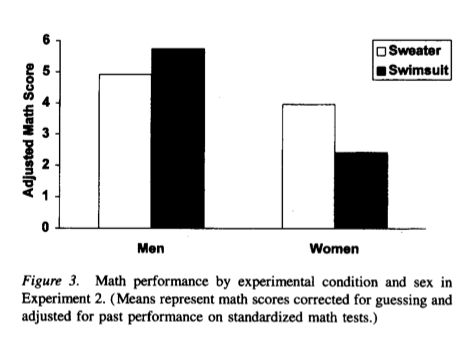Objectifying ads a sign of a regressive Ireland

It is absolutely incongruous to champion TV3's late-night 'chatline' ads as signs of a new, sexually liberated era. By Clara Fischer.
Last week, Fine Gael TD Derek Keating called for the banning of late night adverts, shown on TV3, for what he described as “sexual entertainment services”. There appears to be some dispute about the exact nature of these advertisements, with ComReg purportedly calling the ads “chatline” or “partyline” services, rather than “sexual entertainment services”. Judging by the scantily clad women starring in these particular spots, though, that seems rather odd. Do women always chat and hold parties in their underwear? As a woman, this is news to me.
Keating went on to assert that they serve as a front for organised prostitution. This is a strong claim, and one Keating professes “given the information” he has. The question remains: what is that information, and is his claim true? The Government has dealt with the issue by referring the matter on to ComReg, the regulatory body for electronic communications; and Vincent Browne, whose show has become rather unfortunately embroiled in this debacle, has referred the matter on to the Broadcasting Authority of Ireland.
It is indeed regrettable that ads objectifying women are broadcast during and after a political programme that regularly tackles issues of inequality, including gender inequality, and that includes more women contributors than most. As a keen fan of the show, I’ve felt aggrieved at these ads myself, and have responded to the problem by switching channels. If TV3 believe that the practice of broadcasting objectifying images of women is financially lucrative, I wish to deny this, as it simply encourages politically conscious viewers to not tune in. For other advertisers keen to show off their products during and after a very popular programme, this is also a loss-making strategy, as their adverts will not be viewed once the offending ad has been aired.
Many readers, at this stage, will, like the company in question, assert that TV3’s ads are “entirely legal and popular”, or that criticism is “of another era”; after all, they’re just a bit of fun – but fun at whose expense? Research clearly shows us that women’s and girls’ exposure to sexually objectifying images entails harsh detrimental consequences in terms of physical and mental wellbeing. Depression, low self-esteem, eating disorders, and impaired cognitive ability result from the constant sexualisation women and girls now experience as a matter of course.
One study in a wider research report on girls’ sexualisation by the American Psychological Association vividly illustrated this point. Young women were asked to complete a mathematical test wearing either a swimsuit or a jumper. When asked to wear the swimsuit, women’s ability to complete the test was significantly impaired, while for the male test subjects no differences were found. The APA concluded that “thinking about the body and comparing it to sexualized cultural ideals disrupted mental capacity”, while “sexualization and objectification undermine confidence in and comfort with one’s own body”. Notably, such discomfort and its resultant outgrowths in terms of negative body image, feelings of inadequacy, and so forth, manifest themselves in girls “as well as in adult women”.
Given the evidence for the harmful effects of objectifying images, why should we still be subjected to them? Surely the State, the broadcaster, and the regulator have a responsibility to protect, or at least not to damage, the wellbeing of consumers of media. And yet, the ads were still being shown only last Tuesday evening shortly after 12 o’clock when this writer happened to turn on TV3.
Would we be as tolerant of racist advertising being broadcast, and if not, then why are we so tolerant of sexist and objectifying advertising? The answer might lie in the common conflation of such ads with a kind of progressive, open-minded liberalism, which hides the financial drive to commodify women’s bodies behind high-handed claims to sexual freedom. As the lawyers for the company in question assert, criticisms of their adverts are from a bygone era, a relic of Ireland’s history of sexual repression.
While I am certain that few people want to return to an age where sexual mores were dictated by the Catholic Church, it is absolutely incongruous to champion such objectifying ads as signs of a new, sexually liberated era. Besides the fact that they are aired to make certain people a lot of money, they are expressive of a reductive interpretation of sexuality.
Rather than being progressive, such ads are regressive, as they limit more complex, joyful, desirous, pleasurable expressions of sexuality, while entrenching all of the negative effects women and girls experience as a result of objectification. Monolithic, reductive models of sexuality that are peddled for profit, and that are ultimately harmful to women and girls, are hardly the type of models the new, post-Catholic Consensus Ireland should aspire to and foster.
If the State truly has its citizens’ best interests at heart, then it must now take further steps with regard to these particular ads, and also with regard to any future advertising. We need a robust framework of regulation that views gender equality not as a side issue, to be addressed only when people complain, but as a central and desirable feature of our society. {jathumbnailoff}
Dr. Clara Fischer holds a Ph.D. in feminist theory and political philosophy from Trinity College Dublin, and is a co-ordinator of the Irish Feminist Network. The network will hold its first conference on feminist activism in Ireland on 19 May in the Sean O’Casey Community Centre, Dublin 3.
Image top: From That swimsuit becomes you: Sex differences in self-objectification, restrained eating, and math performance (Fredrickson et. al, 1998).
